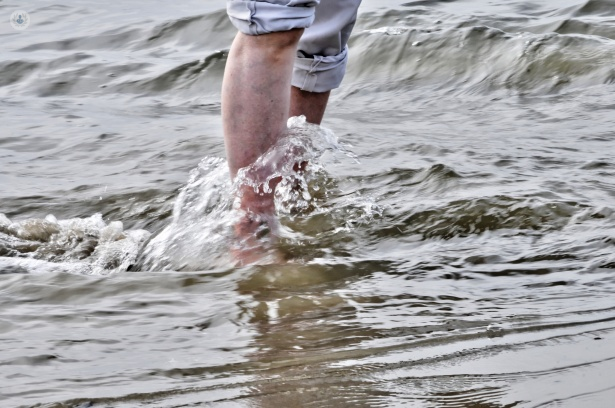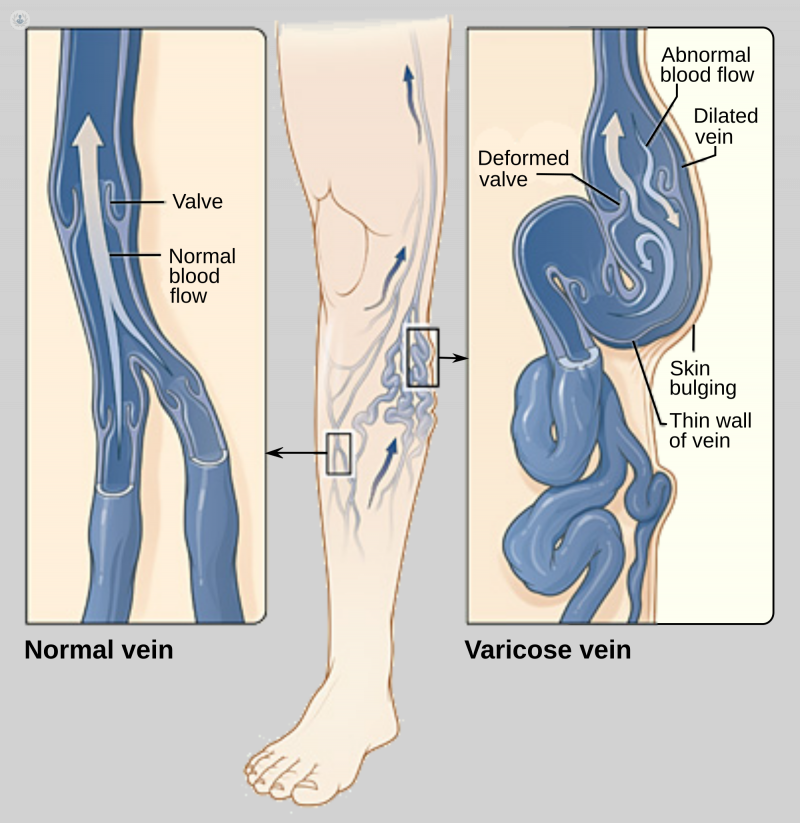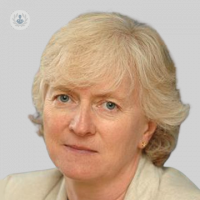What are varicose veins? A guide to swollen veins
Written by:Swollen, twisted veins can crop up on our legs at any time of life, but particularly as we get older. These varicose veins can lead to a number of other problems. What causes varicose veins and what happens once you have them? Esteemed vascular surgeon Ms Sophie Renton is here with answers.

What are varicose veins?
Varicose veins are a common condition affecting the main veins that pass through the skin of the leg, in which the veins become swollen, dilated, and tortuous. They occur equally in men and women, with symptoms tending to present earlier in women. While they can develop from the teenage years onwards, they occur most frequently in elderly individuals. It is estimated that overall 30-40% of the population have varicose veins.
It has been suggested that various factors, such as a sedentary lifestyle, obesity, standing for long periods, and constipation cause varicose veins, but none of this has been proven. However, there appears to be a connection to genetics, as patients with a family history of the condition have a greater chance of developing varicose veins, and this, combined with factors like weight, lifestyle, and pregnancy, could encourage their development.

What are the symptoms of varicose veins?
The symptoms of varicose veins vary from patient to patient. The severity of the symptoms is also highly variable, and there doesn’t appear to be a connection between the size of the veins and the severity; a patient with large, bulging veins may not suffer from any symptoms, while a patient with few visible veins may experience severe problems.
The symptoms typically include:
- Aching, particularly after standing for long periods
- The legs feeling tired and heavy
- Restless legs
- Ankle swelling, especially at the end of the day
- Itching
- Eczema
- Skin discolouration
- Ulceration – leg ulcers are breaks in the skin that have been present for more than two weeks. Varicose veins are a major cause of leg ulcers. Not only can they delay ulcer healing, but if you have varicose veins, it is more likely that the ulcers will recur.
If I have varicose veins, will they get worse?
Varicose veins do not improve without treatment. Once milder symptoms like tenderness, aching legs, and swollen ankles start to appear, it is likely that more serious symptoms will soon follow, such as skin discolouration, eczema, and ulceration. All of these symptoms are due to the skin damage caused by the veins not functioning as they should, and most can be resolved with treatment.
Treatment for varicose veins
A number of treatment options exist for varicose veins. A specialist should assess the condition of your legs in clinic and discuss these options with you to decide on the best treatment for you.
Read a true story of how Ms Renton helped a patient with persistent varicose veins
If you are worried about varicose veins and would like to talk about your options, make an appointment with Miss Renton.


